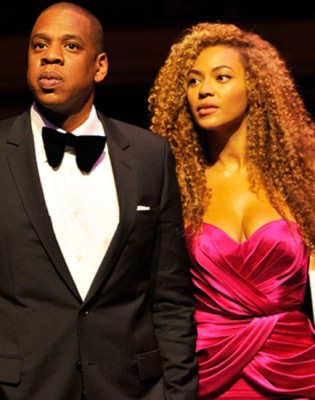Obama hasn’t done crap for America. Instead, Obama has spent most of his time as president working for his own re-election.
In fact, instead of meeting with the world leaders in NY for the UN General Assembly, Obama decided to blow them all off so that he could go do more… you guessed it – campaigning and fundraising.
If not for sports champions and terrorists, President Obama’s public schedule for September would be nearly empty of official events, as he devoted most of his time to campaigning for re-election.
On Sept. 6, Mr. Obama accepted the Democratic Party’s renomination in Charlotte, N.C. In the 21 days since then, the president has had a total of 14 events on his White House schedule, not including regular daily briefings and occasional lunches with Vice President Joseph R. Biden.
In the same period, Mr. Obama’s other two “jobs” — campaigner and fundraiser — crowded out his White House schedule. As the first incumbent president to forgo public financing, Mr. Obama has held 24 campaign events this month, from Colorado to New Hampshire, from rallying auto workers to raising millions of dollars with pop diva Beyonce.
Six of the president’s official events were the result of terrorism — four on Sept. 11 to commemorate the 11th anniversary of the terrorist attacks, and to pay respect to veterans of the Iraq and Afghanistan wars. He also held two events, on Sept. 11 and Sept. 14, in response to the deaths of four Americans in an attack on the U.S. Consulate in Benghazi, Libya, including Ambassador J. Christopher Stevens.
As have all recent presidents, Mr. Obama set aside time this month to welcome sports heroes to the White House. On Sept. 14, he greeted U.S. athletes from the 2012 Olympics and Paralympics, and met with the 2011 WNBA champion Minnesota Lynx on Sept. 18.
The decisions over splitting the president’s valuable time between campaigning and governing came into sharp focus this week when Mr. Obama was criticized for shunning one-on-one meetings with foreign leaders at the United Nations in New York at the same time he booked an appearance with first lady Michelle Obama on “The View,” a daytime chat show popular with female voters.
White House officials defended Mr. Obama’s schedule, saying he is always attentive to his duties no matter where he is or what he is doing.
“He is intensively engaged in matters of national security and foreign policy as he has been throughout his presidency,” White House press secretary Jay Carney said this week, responding to more than a dozen questions from reporters about the priority given to “The View.”
One journalist noted that last year, when Mr. Obama wasn’t campaigning for re-election, he held 13 bilateral meetings with foreign heads of state at the U.N. Of the past four incumbent presidents who attended the U.N. General Assembly while running for re-election, only one, George H.W. Bush, held no bilateral meetings.
George W. Bush held four such meetings in September 2004, Bill Clinton held one in 1996, and Ronald Reagan held three in 1984, including a high-stakes encounter with Soviet Foreign Minister Andrei Gromyko. Amid the criticism of Mr. Obama’s light diplomatic schedule this week, he did meet briefly with the president of Yemen and the secretary-general of the U.N.
A president’s office travels with him, and Mr. Obama’s office this weekend is heading west. On Sunday, the president will travel to Nevada for a campaign rally, followed by two full days of preparation on the road for his first debate with Republican nominee Mitt Romney. An Obama campaign spokeswoman said Thursday that the demands of running the country are keeping the president from spending more time than he would like on debate preparation.
“The president will have some time to prepare and he’s been doing some studying, but it is certainly less than we have anticipated because of events in the Middle East, because of his busy travel schedule — because of just the constraints of governing,” said campaign spokeswoman Jen Psaki. “So it is less than we originally planned.”
Other factors that weigh on an incumbent president’s scheduling decisions during a re-election campaign are early voting and fundraising. Thirty-two states now allow early voting, causing candidates to place an emphasis on visiting battleground states more often and earlier in the fall campaign.
“Early voting is a priority this year, just as it was in 2008,” Ms. Psaki said. “A vote on Election Day is no more valuable than a vote before Election Day. In fact, a vote before Election Day frees up a supporter to knock on doors, make phone calls and get their friends and neighbors to the polls.”
As he geared up for the 2008 presidential race, Mr. Obama said in a questionnaire that he would accept public financing if his opponent agreed.
But he decided later not to enter the public financing system and became the first major-party nominee to forgo the public money and spending limits. He went on to raise about $750 million, more than three times what Republican John McCain could spend.
This year, neither Mr. Obama nor his opponent, Republican Mitt Romney, is accepting public financing. During the race to raise cash through the fall campaign, Mr. Obama has held multiple fundraising events on the same day. On one notable day, Mr. Obama held six fundraisers in about nine hours, flying from Washington on Air Force One to Minneapolis for a triple-header of donor events before flying to Chicago for three more.
Mr. Romney also is keeping an ambitious fundraising schedule, but he is free from the concerns and time demands of a day job.
Among the limited number of other events on the president’s public schedule since the Democratic convention were a meeting at the White House with Myanmar’s opposition leader Aung San Suu Kyi on Sept. 19 and his speech to the U.N. General Assembly on Tuesday.
Stand Up To Government Corruption and Hypocrisy – usbacklash.org

